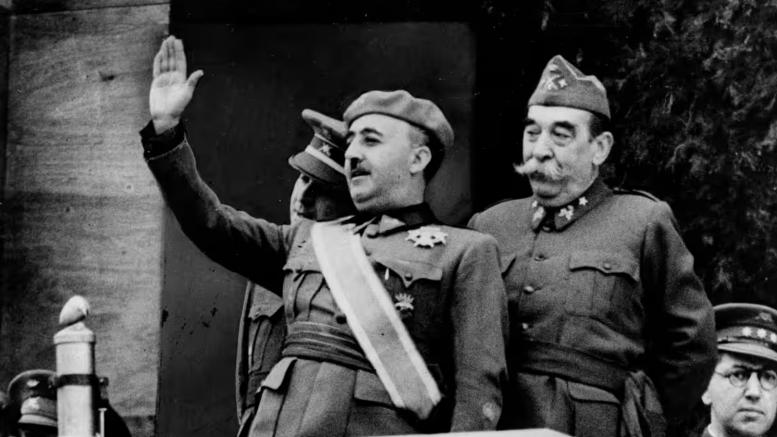A little more than 85 years ago, on 28 March 1939, the Spanish civil war ended. The fascist forces under the command of General Franco entered the capital, Madrid, and it was all over. Spain did not see freedom again for nearly four decades.
There are many reasons why the Spanish Republic fell — some of them due to failures by the Republican leadership. But one outstanding reason was the lack of support that the Spanish Republic received from democratic states like Britain, France and the United States. While Nazi Germany and Fascist Italy provided weapons, ammunition and air support to the fascists, the Western democracies kept up an arms embargo. It was an unfair fight from the beginning because of that.
The French socialist Léon Blum, leading a Popular Front government, was so frightened of the possibility of a civil war breaking out in his own country that he betrayed the Spanish Republic. He not only prevented French support reaching Spain, but actively encouraged dozens of other democracies, including Britain, to join the embargo as well.
The Soviet Union under Stalin’s leadership did step in and provide support for the embattled Spanish Republicans. They sent aid and military advisors to help the Spanish fight for a time, but they also sent their secret police to suppress any opposition. George Orwell witnessed that first-hand, and barely escaped Barcelona alive.
The parallels between Spain in the 1930s and Ukraine today are obvious. The authoritarian Putin regime in Russia is throwing everything it has at Ukraine, backed by the weaponry of Iran and North Korea. Ukraine is getting loads of support from its Baltic neighbours and some other European nations including Britain, but its most important source of defensive weapons — the United States — has disappeared from the scene.
The Republican Party, whose unchallenged leader is Donald Trump, has done everything possible to prevent the United States from arming Ukraine, giving it the tools to defend itself. There remain some Republican leaders who still support Ukraine, but they’re fighting an uphill battle.
Trump personally feels close to the Russian leader and has insisted that if re-elected President later this year, he will end the conflict in Ukraine in one day. This is just bluster. He has no plan to end the war. What he means is that he’ll fully cut Ukraine off from getting American support, allowing the Russians to win.
A Russian victory in Ukraine cannot be allowed to happen — and it is not inevitable. Ukraine can still win this war. We on the left and in the trade unions must make sure that the tragedy of Franco’s victory is not repeated later this year in Ukraine.
We will do that by campaigning around the simple, easy to understand slogan — “Arm Ukraine!”
In the US, it means that the Left must support President Joe Biden’s efforts to pass legislation to arm Ukraine. This is not yet the case. Bernie Sanders, who initially condemned the Russian invasion in 2022, has now joined Republicans in voting against sending help to the embattled Ukrainians. Sanders said he denied support for Biden’s aid package for Ukraine because, as he explained, it included support for Israel and other countries. But he offered no credible alternative, choosing instead to vote to block Biden’s bill.
Democratic Socialists of America exploded in growth thanks to the Sanders presidential campaigns and is today the largest socialist organisation in American history. It includes many individuals who would welcome a Russian victory. If that remains the view of most of the American Left, the country urgently needs a new Left, one committed to a Ukrainian victory.
In Britain, things are better, with the Labour Party still supporting Ukraine thanks in part to the work of organisations like the Ukraine Solidarity Campaign. And Keir Starmer has been unwavering in his commitment to Ukraine.
85 years ago, we could not save Spain. We said “No pasarán!” But the fascists did pass.
This year, we must make sure that the Spanish tragedy is not repeated.
Arm Ukraine now!
This article appears in this week’s issue of Solidarity.
